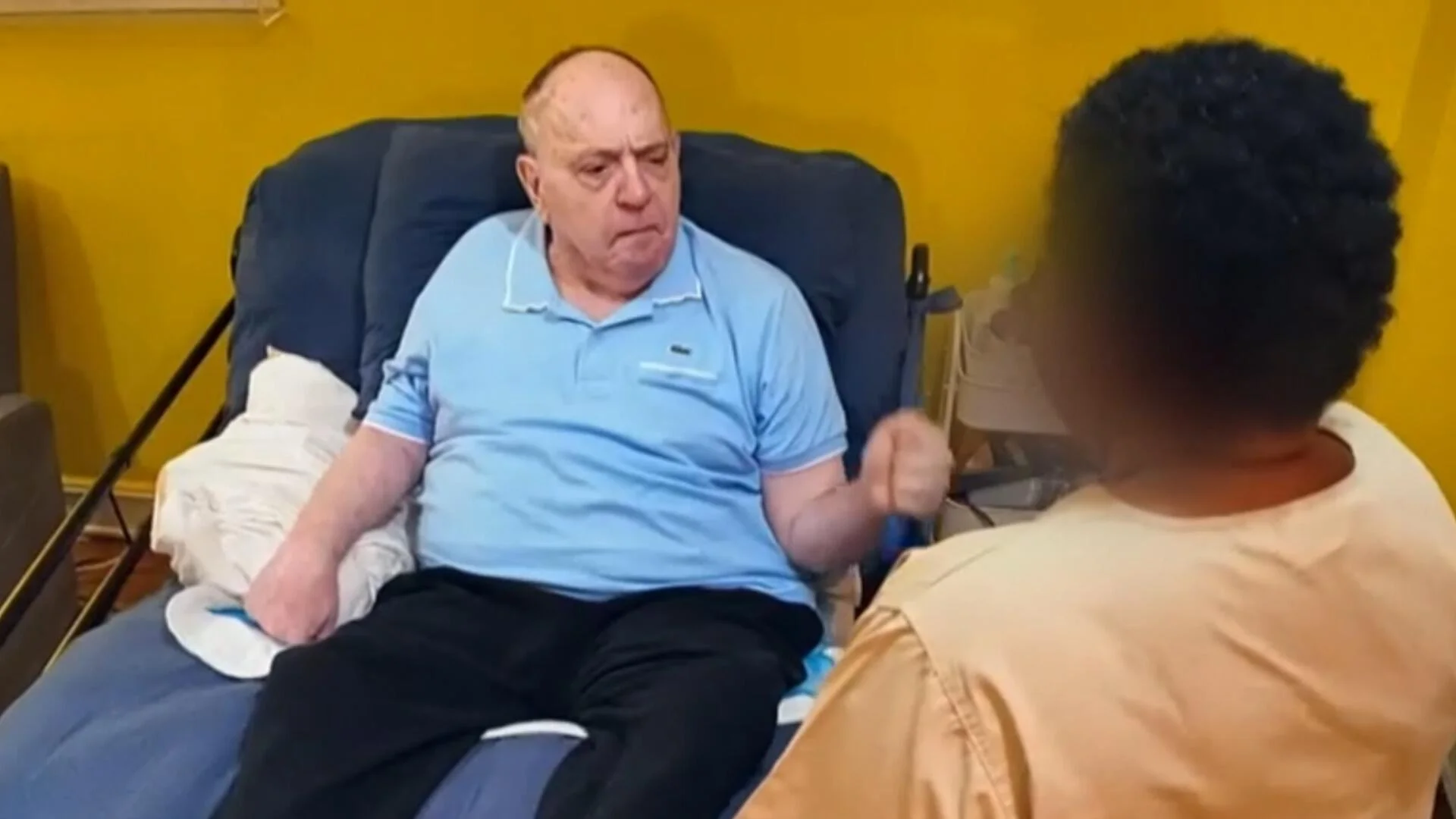The United States health care system is facing a crisis that few headlines capture with the urgency it deserves. As the population continues to age, the demand for health care aides—those unsung heroes who provide daily care to seniors, the disabled, and vulnerable patients—has surged dramatically. Yet at the same time, policymakers are considering rolling back Temporary Protected Status (TPS) for immigrants, a decision that could severely worsen the existing labor shortage in the caregiving field. Advocates, health care leaders, and immigrant rights groups warn that the elimination of TPS would not only disrupt the lives of thousands of immigrant workers but also destabilize the already fragile infrastructure of long-term and home-based care in America.
- Understanding Temporary Protected Status and Its Role in the Workforce
- The Growing Demand for Health Care Aides in America
- A Story from the Front Lines: Maria’s Experience
- Economic and Social Consequences of Ending TPS for Health Care Workers
- Voices from the Advocacy Community
- The Humanitarian and Ethical Dimensions
- Policy Options and Possible Solutions
- FAQs
- What is Temporary Protected Status (TPS)?
- How many TPS holders work in health care?
- Why are health care aides so important?
- What would happen if TPS ends?
- What solutions are being proposed to address this issue?
- How does this issue affect families?
- Conclusion
The issue sits at the crossroads of immigration policy, labor economics, and public health. With millions of Americans relying on home health aides and nursing assistants, the potential fallout from ending TPS could reverberate far beyond immigrant communities. It could affect the elderly in nursing homes, the disabled who rely on daily care, and even hospitals struggling with staffing. This article explores the multifaceted impact of TPS, the role immigrant workers play in health care, the demographic realities fueling the caregiver shortage, and the growing chorus of voices urging policymakers to reconsider.
Understanding Temporary Protected Status and Its Role in the Workforce
Temporary Protected Status was created as a humanitarian safeguard, allowing individuals from countries experiencing armed conflict, environmental disaster, or political instability to live and work legally in the United States. Over the years, hundreds of thousands of immigrants from countries such as El Salvador, Haiti, Honduras, and Sudan have been granted TPS, enabling them to establish stable lives and careers.
For many, these careers are rooted in health care. According to the Migration Policy Institute, more than one in five TPS holders work in industries classified as “essential,” and a significant portion are employed in health care and social assistance roles. These workers are not just filling gaps; they are forming the backbone of a system stretched thin by surging demand.
Without TPS, many immigrants could lose their legal status and work authorization, potentially forcing them to leave their jobs. In health care, where recruitment and retention are already difficult, the consequences would be immediate and profound.
The Growing Demand for Health Care Aides in America
Demographic shifts are driving an unprecedented demand for health care aides. The U.S. Census Bureau projects that by 2034, older adults will outnumber children for the first time in history. This aging population translates directly into increased need for long-term care services.
The Bureau of Labor Statistics estimates that the demand for home health and personal care aides will grow by more than 20 percent over the next decade, far outpacing the average for all occupations. Yet even with this growth, the industry struggles to attract and retain workers. Low wages, physically demanding labor, and limited career advancement opportunities have left many positions unfilled.
In this context, TPS holders and other immigrant workers have become indispensable. They provide critical care in nursing homes, hospitals, and private residences, ensuring that elderly and disabled patients receive the attention they need. Advocates argue that removing thousands of these workers from the field would create a ripple effect that worsens wait times, reduces quality of care, and increases pressure on already overwhelmed facilities.
A Story from the Front Lines: Maria’s Experience
Consider Maria, a Haitian immigrant who has worked as a certified nursing assistant in Florida for more than 15 years. When her country was struck by a devastating earthquake, she qualified for TPS and was able to stay in the United States. Over the years, Maria has cared for countless patients, often working overnight shifts that others refuse to take. She has helped dementia patients eat, bathed the bedridden, and provided emotional support to families in crisis.
Maria fears that if TPS is revoked, she will not only lose her job but also leave her patients without care. “My patients depend on me,” she said in an interview with a local advocacy group. “If I am forced to leave, who will be there for them?” Maria’s story is not unique. Across the country, thousands of TPS holders echo the same concern: their departure would leave a void that cannot be easily filled.
Economic and Social Consequences of Ending TPS for Health Care Workers
The loss of TPS health care workers would be felt on multiple levels. At the institutional level, nursing homes and hospitals already grappling with staffing shortages would face increased costs as they scramble to recruit and train new workers. According to industry surveys, turnover among health aides can exceed 60 percent annually, making recruitment an ongoing challenge. Removing an experienced pool of immigrant workers would only exacerbate the problem.
For patients, the consequences are more personal. Seniors could face reduced hours of in-home care or be placed on waiting lists for nursing facilities. Families might be forced to shoulder caregiving responsibilities themselves, often at great personal and financial sacrifice.
Economists also warn of broader impacts. Caregiver shortages can lead to increased hospital readmissions, longer stays, and higher health care costs overall. The American Health Care Association has reported that staffing shortages are the single greatest challenge facing nursing homes today, and the loss of TPS workers would likely push many facilities to the breaking point.
Voices from the Advocacy Community
Advocates for immigrant rights and health care reform have been vocal about the stakes. “Ending TPS is not just an immigration issue—it’s a public health crisis in the making,” said a spokesperson from the National Immigration Forum. Similarly, health policy experts have noted that immigrant workers make up nearly 30 percent of the direct care workforce, underscoring their essential role in sustaining the system.
Labor unions representing health aides have also raised concerns, arguing that eliminating TPS could disrupt the fragile balance of staffing at hospitals and care facilities. They emphasize that these workers are not easily replaceable, especially given the low wages and difficult working conditions.
The Humanitarian and Ethical Dimensions
Beyond economics and logistics, the debate over TPS touches on profound humanitarian and ethical questions. Many TPS holders have lived in the U.S. for decades, raising families, buying homes, and contributing to their communities. Stripping them of legal status would not only uproot their lives but also destabilize the communities that depend on them.
From an ethical standpoint, there is also the question of responsibility. Having relied on these workers during national crises such as the COVID-19 pandemic—when immigrant health aides were on the front lines caring for the sick—it raises moral concerns about discarding their contributions once their labor is no longer politically convenient.
Policy Options and Possible Solutions
Advocates are urging lawmakers to explore alternatives that protect TPS holders while addressing the labor needs of the health care sector. Some proposed solutions include:
- Pathways to Permanent Residency: Creating a legal path for long-term TPS holders to obtain permanent residency would stabilize the workforce and reward years of contribution.
- Targeted Work Visas: Expanding visa programs specifically for health care aides could help meet demand while acknowledging the essential nature of the work.
- Wage and Training Investments: Improving wages and career development opportunities could make the profession more attractive to U.S.-born workers, reducing overreliance on immigrant labor.
However, many advocates stress that these solutions must be pursued urgently, before the health care system reaches a breaking point.
FAQs
What is Temporary Protected Status (TPS)?
Temporary Protected Status is a humanitarian program that allows immigrants from countries facing conflict, natural disasters, or other crises to live and work legally in the United States.
How many TPS holders work in health care?
While exact numbers vary, studies suggest that tens of thousands of TPS holders are employed in health care and social assistance roles, particularly as home health aides and nursing assistants.
Why are health care aides so important?
Health care aides provide essential support for elderly and disabled individuals, often helping with daily tasks such as bathing, eating, and mobility. Their work ensures patients maintain dignity and quality of life.
What would happen if TPS ends?
If TPS ends, many immigrant workers could lose their legal status and jobs, leading to significant staffing shortages in health care. Patients could face longer wait times, reduced care, and higher costs.
What solutions are being proposed to address this issue?
Advocates suggest creating pathways to permanent residency for TPS holders, expanding targeted work visas, and improving wages and career opportunities in the health care sector.
How does this issue affect families?
Without enough professional caregivers, families may be forced to take on more caregiving responsibilities themselves, often resulting in financial strain, reduced work hours, and emotional stress.
Conclusion
The fate of Temporary Protected Status is more than a matter of immigration law—it is a decision with profound implications for America’s health care system and the millions of people who rely on it. Ending TPS could strip thousands of dedicated caregivers from the workforce, worsening shortages, raising costs, and jeopardizing patient care. For advocates, the message is clear: preserving TPS is not just about compassion for immigrants; it is about safeguarding the health and dignity of America’s most vulnerable populations.
The choices policymakers make in the coming months will determine whether families can count on consistent, quality care or whether they will face a deepening crisis. As the nation confronts an aging population and an overburdened health care system, the role of immigrant workers cannot be overlooked. Protecting TPS is not just good policy—it is essential for the well-being of the country.








